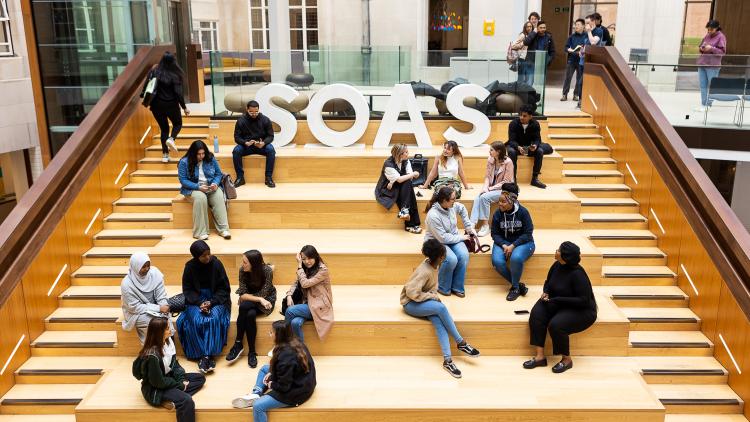Swahili Beginners Course


Key information
- Duration
- 1 term per sub-level; 10 weeks per term
- Attendance mode
- Part-time, online/blended learning
Course overview
This course introduces basic grammatical forms, essential frequent vocabulary and key aspects of pronunciation.
You will have opportunities to practise communicating in Swahili on daily topics (see course content), listen for the gist of a short conversation, write about basic information (email, text message, postcard) and read short texts.
Method
The course is taught in Swahili and English with emphasis on speaking and listening using the taught language. There will also be some reading (translation) and writing (composing) with guided practice in language usage and use of authentic communicative activities. You are expected to attend regularly, participate in class and complete homework regularly to ensure learning progress.
This will be achieved through 20 hours of blended learning: this is composed of 15 hours of online structured lessons with the teacher. This is supplemented by a minimum of 5 hours of guided independent learning supported by complementary material. The course objective will be achieved within the 10-week course.
Material
This course will be based on the textbook: Colloquial Swahili (2nd Edition) by Donovan McGrath and Lutz Marten (2012/2015), Routledge, London/New York. The textbook is not included in the fee but can be purchased from the tutor (Donovan Lee Mcgrath, author) with a 30% discount (only applicable for on campus courses, not online)
You can order the book and download the audio free directly at the Routledge website
We strongly recommend waiting until your course is confirmed before purchasing the textbook.
Entry requirements and progression route
For the first stage of Swahili Beginners (i.e. Beginners 1), no previous knowledge is required. To be able to join Beginners 2 or 3 you should have completed Beginners 1 and 2 respectively at SOAS Language Centre or have an equivalent knowledge of guided learning hours (20 hours per each sub-level).
The progression route from Swahili Beginners 1 is to Swahili Beginners 2; from Beginners 2 to Beginners 3. Upon successful completion of Swahili Beginners 3 you will be able to progress to the Elementary level course in Swahili.
Please note, that each term, courses are subject to quorum requirements.
For course dates and information, please see our timetables.
Structure
Swahili Beginners 1
By the end of the course you should be able to:
- spell out words
- greet people
- initiate a conversation
- use numbers
- say your nationality
- talk about jobs
- talk about your family
- ask and give personal information
Swahili Beginners 2
By the end of the course you should be able to:
- talk about the weather and express feelings and emotions
- take part in a discussion about a current news item or another topic of interest
- talk about hobbies and interests
- talk about things you did in the past
- ask and give the whereabouts of a person, place or thing
- use commands (giving orders)
- order food and drinks at a restaurant
- talk about illness and know parts of the body
- understand more about agreements with nouns (naming words)
Swahili Beginners 3
By the end of the course you should be able to:
- use classroom language
- connect different ideas by using who, whom, whose, which, and that
- use proverbs in their cultural context
- tell events from a different perspective
- identify and use some vocabulary for abstract nouns (beauty, childhood)
- express Swahili songs in a cultural context
- give and receive directions
- identify and use vocabulary for talking about things you do
- talk about your family
- talk about past actions connected with the present moment
- understand travelling a schedule
- describe a trip
- buy tickets
- ask and give Swahili time
- talk about daily routine and habits
- talk about places and locations
- express reciprocal actions
The above is an indication of content that may be covered over the duration of the course but it could vary depending on the level and progress of students in the class.
Contact us
-
african@soas.ac.uk
Disclaimer
Important notice regarding changes to programmes and modules
See more information on the Language Centre Swahili homepage






